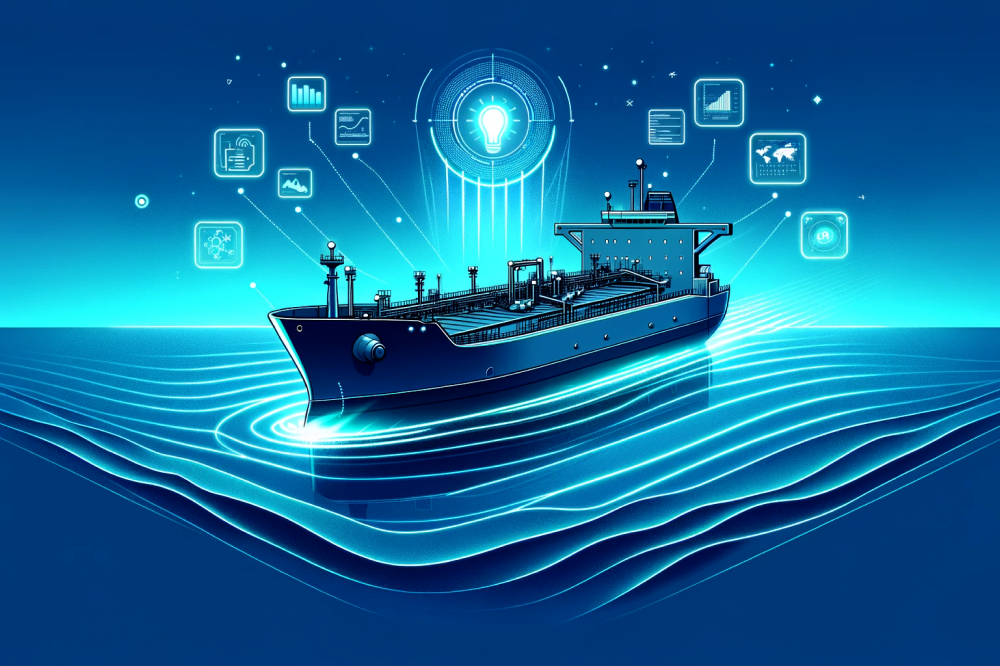
Meet Maiken - Our Student Contact
Welcome to Maritime Optima! Tell us a little bit about yourself.
I am 25 years old and grew up in Bergen, Norway. I am currently doing a Master of Science in Business with a major in leadership and change, which I absolutely love. Prior to this, I did a year-long internship at Ocean Industry Forum Oslofjord after completing my bachelor in Business Administration, where I wrote my bachelor’s degree on how digitalization and technological change affect the value chains in shipping.
While doing my masters, I also work 50% as a Secretary at the Norwegian Shipbrokers’ Association. With the Shipbrokers’ association being a small organization, I get to take part in nearly all aspects of the organization. As a result, main tasks and responsibilities range from contact with members, arranging events, webinars, seminars, handling social media, some light graphic design and so forth. I really learn a lot here, both about organizations and the shipping industry.
Being what most people around me would describe as “overly energetic”, I always love having something to do. If I’m not working or doing schoolwork, you’ll normally find me working out, going out to eat or grabbing a drink with friends.
You wrote a bachelor thesis in digitalization of the maritime industry. Tell us a little bit about your bachelor thesis and what were the main take-aways?
I accidentally fell into writing my bachelor thesis on the shipping industry. I had chosen my bachelor specialization in International Business, but without having any specific ideas of what industry I wanted to work in. After discussing possible topics with the people around me and the two others that I wrote my bachelor’s with, we eventually landed on the shipping industry as an exciting topic. We quickly discovered that digitalization in shipping was a large and complicated topic with many aspects to it. We also found that the industry often lags behind most others in terms of digitalization, and tools to simplify matters were often not utilized. What however became clear, and which was also what sparked my interest into working in shipping, was the great potential that the shipping industry has going forward, both in terms of digitalization and in terms of working towards a more environmentally friendly fleet.
Tell us a little bit more about your Master program, what do you find most interesting and what are your career plans after you have finished your studies?
My Master program is called “Master of Science in Business – Major in Leadership and Change”. My belief is that in a world with the amount of digitalization and technological advancement that we are experiencing now, it is crucial with knowledge on how to manage these changes in any organization. This is exactly what urged me into choosing the major that I did. The courses include both motivation and influence, psychology of communication and economy as well as “classical” MSc in Business topics such as mathematics and Microeconomics. This provides the perfect balance between theory, economic insights, and new themes in leadership research.
You are our student contact, and you will write blog posts where you share your knowledge from your studies. Which topics and challenges do you want to focus on?
In short – innovation. Although innovation for some people can seem like quite a narrow subject, it can be applied to many matters within shipping. Either concerning green fuels, digitalization, teamwork or many other things, there are several different things to discuss, and several things I would like to discuss. This upcoming semester, I will have the courses Change Management, Leadership in Organisations as well as Data Analytics – amongst others, so this semester’s blog posts will naturally be affected by this.
We focus on team and teamwork. In your opinion, why do some teams become successful while others are not? What does it take to become a successful team?
I believe that the answer to this question is quite complex. In my belief, one of the key points to what makes a successful team is the ability to have fun within the team. This naturally means that a good group dynamic must be present - choosing people who will work well together is therefore very important. If, following this, one manages to make the team have fun together, I believe that it is well on the way to becoming a successful team. Through having fun together, the team members will connect and get to know each other better. This encourages better teamwork and lowers the bar for team members to ask each other questions. It also contributes to psychological safety for team members, which has been proven as very important for keeping a well-functioning team. These factors also open for more continuous collaboration, making teams work more as a unit instead of several members of a team working towards similar tasks.
There are so many “digital maritime initiatives”/start-ups - what do you think is unique with Maritime Optima?
In my opinion, Maritime Optima combines large datasets with accessibility, user friendliness and data utilization. This means that not only can Maritime Optima find new and more effective ways of calculating and tracking, but it also makes it extremely simple and easily accessible.















